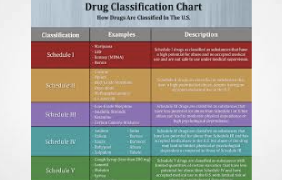Very interesting indeed
The Abstract is as follows
Abstract
The objective of the current study was to investigate the associations between lifetime classic psychedelic use and cardiometabolic diseases. Using data from the National Survey on Drug Use and Health (2005–2014), the present study examined the associations between lifetime classic psychedelic use and two types of cardiometabolic disease: heart disease and diabetes. Respondents who reported having tried a classic psychedelic at least once in their lifetime had lower odds of heart disease in the past year (adjusted odds ratio (aOR) = 0.77 (0.65–0.92), p = .006) and lower odds of diabetes in the past year (adjusted odds ratio (aOR) = 0.88 (0.78–0.99), p = .036). Classic psychedelic use might be beneficial for cardiometabolic health, but more research is needed to investigate potential causal pathways of classic psychedelics on cardiometabolic diseases.
Introduction
Cardiometabolic diseases such as heart disease and diabetes are leading contributors to the global burden of disease1. While pharmacological treatment, intensive lifestyle modification, or both can delay or reverse the development of cardiometabolic diseases2,3,4,5, no study has thus far investigated the long-term cardiometabolic effects of classic psychedelics, which could potentially be administered both as a pharmacological treatment and as part of a program to facilitate healthy lifestyle changes.
The term classic psychedelics broadly refers to psychoactive substances known to act as agonists primarily at serotonin 2A receptors6, which are often categorized into three main classes: tryptamines, lysergamides, and phenethylamines7. Most notably, tryptamines include N,N-dimethyltryptamine (DMT), the DMT-containing admixture ayahuasca, and psilocybin; lysergic acid diethylamide (LSD) comprises the lysergamide class; and phenethylamines include mescaline and the mescaline-containing cacti peyote and San Pedro8. The evidence to date suggests that classic psychedelics have a good risk profile and can be effective in the treatment of several mental health conditions6,9, but recent research indicates that classic psychedelics may also have beneficial effects for a range of physical illnesses, including cardiometabolic diseases such as heart disease and diabetes10,11.
There are several mechanisms through which classic psychedelics might influence cardiometabolic health. First, research suggests that classic psychedelics may facilitate healthy lifestyle changes associated with a beneficial impact on cardiometabolic risk factors (e.g., diet, alcohol and tobacco consumption, and exercise)11. Second, classic psychedelics administered in a safe and supportive setting have been shown to improve mental health conditions associated with cardiometabolic diseases12,13,14,15,16. Third, classic psychedelics have anti-inflammatory and immunomodulatory properties of importance for both mental and cardiometabolic health17,18,19,20. Fourth, classic psychedelics have high affinity to serotonin receptor subtypes associated with cardiometabolic diseases (e.g., serotonin 2A and 2C receptors)17,21. In sum, classic psychedelics could have both direct and indirect effects that lead to better cardiometabolic health.
Previous research has found associations between lifetime classic psychedelic use and lower odds of being overweight or obese as well as lower odds of having hypertension in the past year22,23, which are risk factors of cardiometabolic disease. Using pooled data from the National Survey on Drug Use and Health (2005–2014), the present study therefore sought to investigate the associations between lifetime classic psychedelic use and two types of cardiometabolic disease: heart disease and diabetes. We hypothesized that lifetime classic psychedelic use would be associated with lower odds of heart disease in the past year as well as lower odds of diabetes in the past year.
Results
Table 1 displays the percentage of respondents reporting heart disease or diabetes in the past year. As seen in the table, the prevalence of heart disease or diabetes in the past year among respondents who had ever used a classic psychedelic was approximately 51% and 52%, respectively, of that among respondents who had never used a classic psychedelic. Notably, the prevalence of heart disease or diabetes in the past year among respondents who had ever used a tryptamine (DMT, ayahuasca, or psilocybin) was approximately 45% and 41%, respectively, of that among respondents who had never used a tryptamine. It is noted, however, that these relationships do not control for the range of potential confounding factors.

















